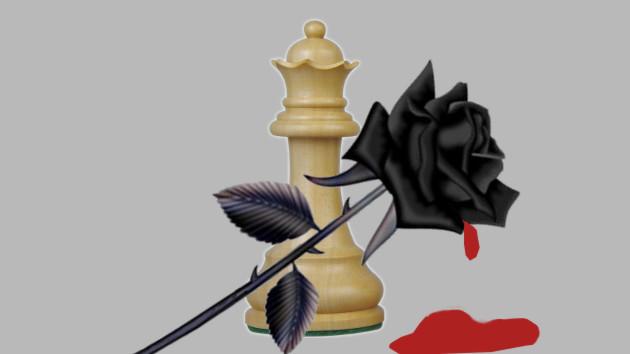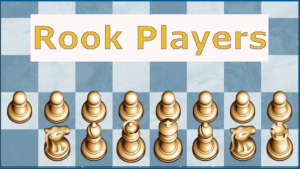
The Killer Instinct

There are many definitions for the concept, "killer instinct." One of the better ones I found, from Dictionary.com, tell us it's "an aggressive and ruthless determination to win or attain a goal."
Maybe it was an eventual place of discovery, but I found one of the better descriptions of the concept at askmen.com. Here is a brief summation of their article, "Six Traits of a Ruthless Man" :
1. Make decisions without feelings.
2. Have no tolerance or patience for stupid people.
3. Forgiveness makes you weak.
4. Punish quickly & brutally
5. Instill fear in others
6. Stay focused & determined
I keep it no secret that one of my favorite writers on chess is GM Gennady Borisvich Sosonko. He contributed many articles to New in Chess between 1988 and 1999, some of which were re-published in his three books - "Smart Chip from St. Petersburg,", "Russian Silhouettes," and "The Reliable Past" - each one a pure gem.

Tal and Sosonko
Sosonko himself was born in 1943 in Troitsk, Russia. He had early success as Lenningrad's junior champion and functioned as a chess trainer until he defected to the Netherlands in 1972. He immediately won the 1973 Dutch Championship. Sosonko has been considered one of the leading experts in the Catalan (1.d4 Nf6 2.c4 e6 3.g3 d5 4.Bg2). In 1984 he drew a short match with Jan Timman (+1-1=0). Timman also founded the Holland-based "New in Chess" magazine in 1984 and Sosonko became a regular contributor and editor of its quarterly volumes and yearbooks.

GM Judit Polgar in Central Park, NYC, 1992
Genna Sosonko utilizing his favorite opening to make short work of 15 year old, soon-to-be-GM, Judit Polgar in 1991:
Now it gets a little more complicated.
The following short passage from "Grand Slam" describes her game in the 1969 Leningrad Championship at the Chigorin Club against the one-time Women's World Chess Champion, Ludmila Rudenko (the first women's champion after Menchik). Levitina was 15; Rudenko was 65 (ironically perhaps, Rudenko's coach, Vassily Byvshev, would later be Levitia's coach). It was Levitina's first adult tournament:
Irina was playing Black in the Leningrad Variation of the Dutch Defence and obtained a strong attacking position straight out of the opening. At that moment Ludmila Vladimirovna, with a knitted shaw thrown over her shoulders, bearing a striking resemblance to the poet Anna Akhmatova in the last years of her life, began feeling unwell. The clocks were stopped and Rudenko lay down with an ashen face and closed her eyes in a room backstage. I was present as a trainer at the Chigorin Club
at the time and immediately called an ambulance.
"What on earth is going on?" Levitina's voice rang out as soon as I put the phone down.
"When do we finish the game?"
The doctors arrived quite quickly and after takng Rudenko's blood pressure they rushed her off to [the] hospital.
"Look at the position, Gennady Borisovich," Irena addressed me again, "after f4 and gxf4 and Nh5 Black has a huge attack on the dark squares."
"But Ira, how can you talk like this," I replied, trying to portray the stark reality for her.
"Ludmila Vladimirovna might not even be with us anymore, she might be gone forever, so who cares about the dark squares?"
Ira insisted: 'If she doesn't take, f3 is threatened - how do you defend?"
An extreme reaction worthy of chronicling to be sure, but how far does it actually stray from the mind-set of competitors? And does it belie Kasparov's observation: "Women, by their nature, are not exceptional chess players: they are not great fighters" ?
In his article "Killer Instinct," Sosonko explores the meaning, purpose and even necessity of playing according to the spirit of the game in a cold-hearted and unforgiving fashion. " . . . Caïssa doesn't like it when some other goddess than she is worshipped. Caïssa doesn't like that. She likes those who enter her kingdom unconditionally and live by her laws. Only after the game can you return to the normal world, getting to know it in the same way that a fish gets to know about water only after it found itself on dry land."
GM Sosonko provides many instances in which a well-intentioned player tried to do what he considered the honorable thing and circumvent the laws governing the spirit of competition. One such incident involved Vladmir Malakhov and Zurab Azmaiparashvili in the 2003 European championships in which Malakhov allowed Azmaiparashvili to change his move (an obvious mind-slip in which he reversed his intended moves) unchallenged with the rationale, "I didn't want to ruin the logical development of the duel." Azmaiparashvili won the game.
Sosonko summarized the incident:
"As far as I can see, this type of incident is almost never repaid with interest. Moreover, it does considerable pschological damage to the part who shows mercy, weakness or indecisiveness. It leads to discomfort, an unpleasant aftertaste and a burning wound in a disturbed soul, as it contradicts the principles of the game itself."
Malakhov said afterwards, "After the game I was left with an unpleasant taste, but that was due mainly to my own play."
Was it?
"Mistakes at the board should be punished, but so should any other 'unchesslike attitudes.' "
The killer instinct dictates that one must show no mercy, no compromise and strive to win at all costs - but only under the strict observance of the laws governing the spirit of competition. To illustrate this idea, Sosonko noted two incidents, one involving Korchnoi, the other Fischer, both of whom had absentmindedly touched a piece, and, rather than trying to avoid the consequence by saying j'adoube, Korchnoi resigned and Fischer played a clearly losing move. Sosonko considers such brutal honesty, not at all adverse to the idea of winning at all costs, but rather a tempering at the forge of experience and totally in keeping with the spirit of the game.
"To be a world champion you have to be something of a barbarian. You must have a well-developed Killer Instinct" - Boris Spassky






